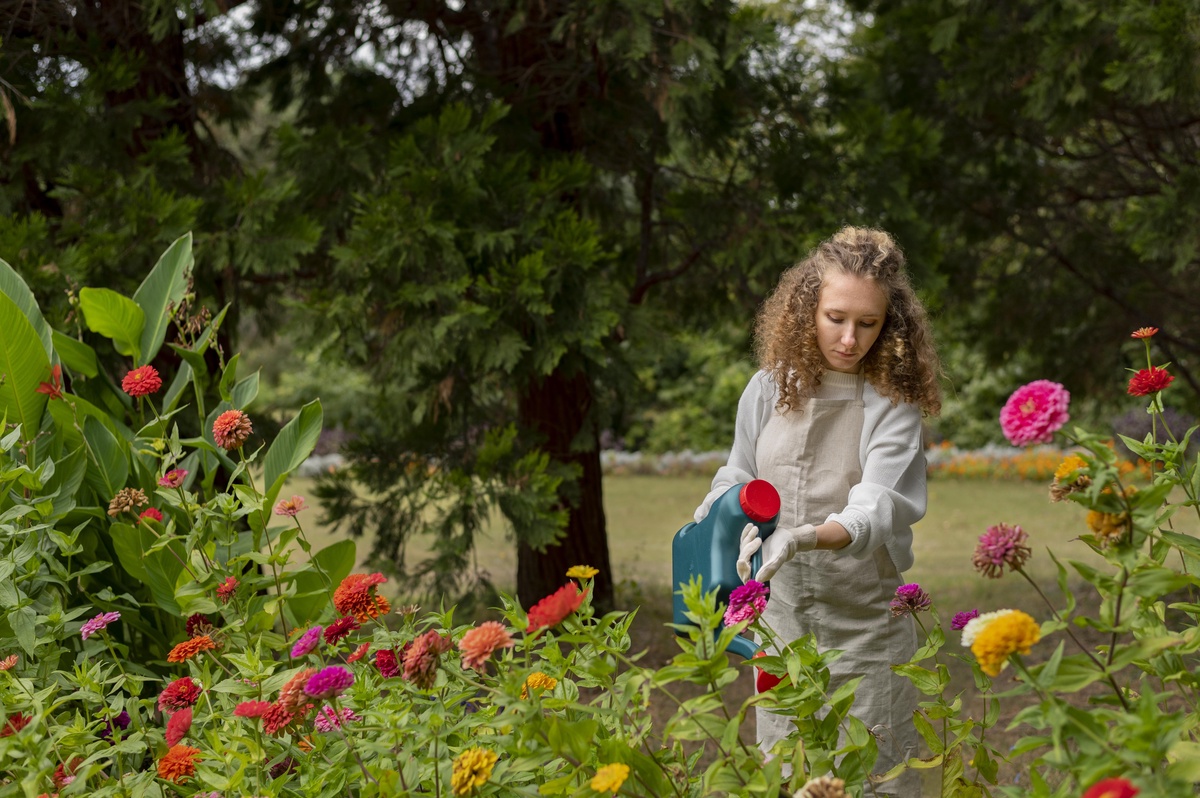Introduction
Gardening is more than just a hobby; it's a passion and a way of life for many people. With the right tips and techniques, even novice gardeners can enjoy the numerous benefits of a well-tended garden. This article will explore various aspects of gardening, from soil improvement and pest control to plant selection and garden maintenance. Whether you're a seasoned gardener looking to expand your knowledge or a beginner just starting on your gardening journey, you'll find helpful information and advice to help you create and maintain a thriving garden.
Soil Improvement: Building a Strong Foundation
Gardeners know that healthy soil is the foundation of a thriving garden. Here are some tips for improving your garden's soil:
- Test your soil: Before you start planting, it's essential to know your soil's pH level and nutrient content. You can purchase soil testing kits at your local garden center or online.
- Amend your soil: Based on your soil test results, you may need to add specific amendments such as lime, sulfur, or organic matter to improve the soil's pH and nutrient levels.

- Practice crop rotation: Rotating your crops can help prevent soil-borne diseases and improve soil fertility.
- Add compost: Compost adds valuable organic matter to your soil, improving its structure, water retention, and nutrient content.
- Use cover crops: Planting cover crops, like clover or rye, can improve soil fertility, prevent erosion, and suppress weeds.
Pest Control: Protecting Your Garden Naturally
Pest control is an essential aspect of gardening, and there are many natural methods you can use to protect your plants from harmful pests:
- Encourage beneficial insects: Plant flowers and herbs that attract beneficial insects like ladybugs, lacewings, and parasitic wasps, which help control pests.
- Use companion planting: Some plants can help deter pests when planted near other plants. For example, marigolds can help repel nematodes and aphids, while basil can deter flies and mosquitoes.
- Practice good garden hygiene: Remove dead leaves, weeds, and plant debris to prevent pests from finding hiding spots in your garden.
- Try homemade remedies: Some pests can be controlled with simple household items like soap, vinegar, or baking soda.
- Use organic pesticides: If you need to use pesticides, choose organic options like neem oil or insecticidal soap, which are less harmful to the environment and beneficial insects.
Plant Selection: Choosing the Right Plants for Your Space
The success of your garden depends largely on choosing the right plants for your space and climate. Here are some tips for selecting the best plants for your garden:
- Choose native plants: Native plants are well-adapted to your local climate and soil conditions, making them easier to grow and maintain.
- Consider your garden's microclimate: Take note of the different areas that receive varying amounts of sunlight, moisture, and wind exposure. Select plants that will thrive in these specific conditions.
- Choose plants suited to your soil: Some plants prefer acidic soils, while others thrive in alkaline conditions. Select plants that are well-suited to your soil's pH level.
- Consider size and growth habits: Choose plants that will not outgrow their space or crowd neighboring plants. Be mindful of plants with invasive root systems or those that spread aggressively.
- Plant for year-round interest: Include a mix of annuals, perennials, shrubs, and trees that provide color, texture, and interest throughout the seasons.
Garden Maintenance: Keeping Your Garden Healthy and Beautiful
Regular garden maintenance is essential for keeping your garden looking its best and preventing problems before they become difficult to manage. Here are some basic maintenance tasks for gardeners:
- Watering: Water your plants deeply and consistently, focusing on the root zone rather than the foliage. Be mindful of each plant's specific water needs, as overwatering can be just as harmful as underwatering.
- Pruning: Regularly prune your plants to remove dead, diseased, or damaged branches and promote healthy growth. Prune at the right time for each plant to avoid causing stress.
- Mulching: Apply a layer of organic mulch around your plants to help conserve moisture, suppress weeds, and regulate soil temperature.
- Weeding: Stay on top of weeds by regularly hand-pulling or using a hoe to prevent them from competing with your plants for nutrients, water, and sunlight.
- Fertilizing: Feed your plants with organic fertilizers or compost to provide them with the necessary nutrients for healthy growth.
Organic Gardening: Tips for a Chemical-Free Garden

Organic gardening is a great way to grow a healthy, sustainable garden without relying on synthetic chemicals. Here are some tips for successful organic gardening:
- Use organic soil amendments: Improve your soil with organic matter like compost, aged manure, or leaf mold.
- Choose organic seeds and plants: Look for seeds and plants that are certified organic or come from a reputable source that practices organic growing methods.
- Control pests naturally: Use natural pest control methods like companion planting, beneficial insects, and homemade remedies instead of synthetic pesticides.
- Practice crop rotation: Rotate your crops to prevent the buildup of pests and diseases in your soil.
- Use organic fertilizers: Feed your plants with organic fertilizers like compost, fish emulsion, or blood meal to provide them with essential nutrients without relying on synthetic chemicals.
Conclusion
Gardening is a rewarding and fulfilling activity that offers countless benefits for both the gardener and the environment. By following these tips and techniques, you can create a thriving garden that is not only beautiful but also sustainable and healthy. Remember, the key to successful gardening lies in understanding your garden's unique conditions and needs and adapting your practices accordingly. With patience, persistence, and a passion for gardening, you'll soon enjoy the fruits of your labor and the satisfaction of nurturing a thriving garden.


No comments yet